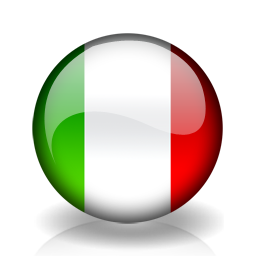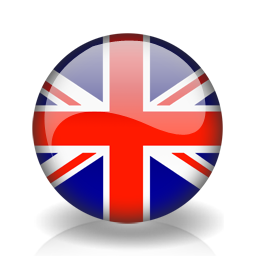BACHELOR'S DEGREE
ARCHAEOLOGICAL RESEARCH METHODS: FIELD AND LABORATORY RESEARCH (SSD L-ANT/10)
(60 hours, 9 ECTS, second semester) - A.Y. 2020/2021
Prof.ssa Gloria Olcese (gloria.olcese@unimi.it)
Università degli Studi di Milano
Degree Program:
Science of Cultural Property (Classe L-1)-Enrolled from 2017/2018
Learning objectives: to introduce the activities of archaeological research, with a particular focus on the modern methods of investigation related to stratigraphical excavation, archaeological survey and the study of ancient production. Attention is also given to underwater archeology and to the cargoes of the wrecks of the Mediterranean, the study of which allows us to reconstruct the history of ancient trade.
A practical activity on the topics of the course, if possible, will also be carried out directly in the field (at the archaeological site of Castelseprio, VA in collaboration with Prof. G. P. Brogiolo - UNIPD).
Expected learning outcomes: the course is designed to provide students with the necessary tools for the study of archaeological contexts and archaeological finds on land and underwater, and for the processing and interpretation of data using archaeological and archaeometric methods.
Program: this course will show how archaeology – both on land and underwater – works in the field and in the laboratory, demonstrating its modern scientific methodologies. Lectures are arranged in three parts:
1) Introduction to archaeological research methodology
Presents the principal themes of archaeological field research and references the place of field archaeology in Italy as it relates to current norms.
2) Archaeological survey and excavation
Illustrates methods of archaeological and geophysical survey. Additionally, it illustrates the principals and methods of stratification on land and underwater.
3) Archaeological finds: archaeology and archaeometry
Focuses on methods of classification and some new scientific methodologies for investigating archaeological finds (determination of origin, analysis of organic residues for the reconstruction of ancient foodstuffs, DNA analysis).
Depending on the evolving situation with Covid, the course may include a practical component involving the classification of ceramic finds and a field school that illustrates some of the investigative methods presented during the lectures (probably at the archaeological site of Castelseprio, VA, in collaboration with Prof. G.P. Brogiolo - UNIPD).
Teaching methods: lectures with the aid of PowerPoint presentations.
There will be practical lessons on ancient finds (description and classification of objects/finds).
Teaching resources:
ATTENDING STUDENTS
PART 1 - INTRODUCTION TO METHODOLOGY OF ARCHAEOLOGICAL RESEARCH
- C. Renfrew, P. Bahn, Archeologia: Teorie, Metodi, Pratica, Zanichelli Editori, Bologna 2006 (in particolare, i capitoli: 1, 2, 3, 4, 8 e 9).
- Dizionario di Archeologia, (a cura di R. Francovich e D. Manacorda), Editori Laterza, Roma-Bari 2000
in particular: Campionatura; Commercio (Archeologia del); Contesto; Cronologia; Cultura Materiale; Etnoarcheologia; Geoarcheologia; New Archaeology; Post-processuale (Archeologia); Produzione (Archeologia della); Seriazione; Sperimentale (archeologia).
PART 2 - SURVEY AND EXCAVATION
- Dizionario di Archeologia, (a cura di R. Francovich e D. Manacorda), Editori Laterza, Roma-Bari 2000
in particular: Diagnostica archeologica; Ricognizione archeologica; Scavo archeologico; Scavo, pratica e documentazione; Subacquea (archeologia); Urbana (archeologia).
- E. C. Harris, Principi di stratigrafia archeologica, Roma 1995 (le parti 1, 2, 3, 4, 5, 6, 9, 10 - to be confermed - and "Appendici").
- R. Petriaggi, B. Davidde, Archeologia sott'acqua. Teoria e pratica, Roma 2007 (capitoli 1, 2, 6 e 7).
PART 3 - ARCHAEOLOGICAL FINDS: ARCHAEOLOY AND ARCHAEOMETRY
- Dizionario di Archeologia, (a cura di R. Francovich e D. Manacorda), Editori Laterza, Roma-Bari 2000
in particular: Archeometria; Datazione; Determinazione d'origine; Tecnologie produttive.
NON-ATTENDING STUDENTS
Students who did not attend or have missed more lessons must contact the professor, as well as those who are called to attend the exam for 6 CFU.
Integration to the attending students' program:
- Istituto della Enciclopedia Italiana (a cura di), Il mondo dell'archeologia: Storia, metodi, protagonisti, Roma 2002
in particular, chapters: L'indagine sul campo (pp. 149-222); Le datazioni (pp. 266-292); Metodi matematici e statistici (pp. 310-326).
+
one or two (on the basis of the personal situation) between:
- G. P. Brogiolo, Archeologia dell'edilizia storica, Como 1988.
- T. Mannoni, E. Giannichedda, Archeologia della produzione, Torino 1996.
- E. Giannichedda, Archeologia teorica, Roma 2002.
- M. Vidale, Che cos'è l'etnoarcheologia, Roma 2004.
- M. Jones, Cacciatori di molecole. L'archeologia alla ricerca del DNA antico, Roma 2005.
- P. E. McGovern, L'archeologo e l'uva, Roma 2005.
- S. Settis, Paesaggio, Costituzione, Cemento, Milano 2010.
- F. Cambi, Manuale di archeologia dei paesaggi, Roma 2011.
- E. Farinetti, I paesaggi in archeologia: analisi e interpretazione, Roma 2012.
Assessment methods and criteria: oral exam (marks are out of 30), if possible with a preliminary written test.
Exams: to be decided.
Classes: to be decided.
Emergency remote teaching: if the health emergency continues, the lessons of will take place online.
Students will find the information about lessons, program and bibliography on this site and on the Ariel teaching site.
If it is not possible to take the exam in presence, the exam will be conducted online.




